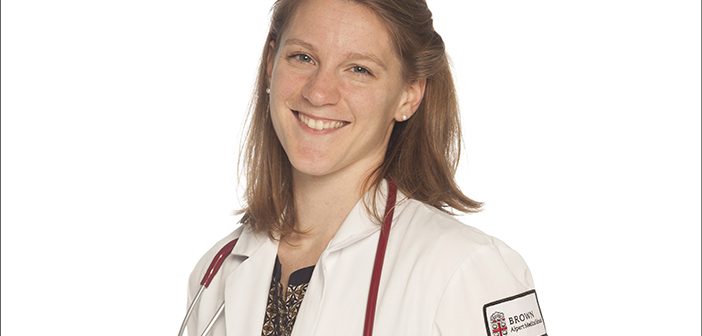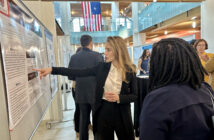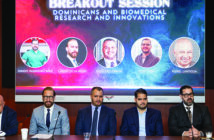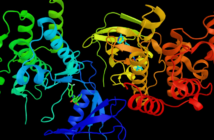Emily MacDuffie MD’19 will spend a year conducting biomedical research at MIT.
Since long before her first day at the Warren Alpert Medical School, Emily MacDuffie MD’19 has known research would play a role in her future clinical practice.
The Maine native began working in labs during her summers as an undergrad, and after graduating from Swarthmore with a degree in biology she spent six months in Botswana as a clinical researcher on a cervical cancer study. When she got back from Africa, she worked in ovarian cancer research at Dana-Farber Cancer Institute and then joined a microbiome project at Novartis in Cambridge, MA.
MacDuffie decided not to apply for MD-PhD programs—she wants patient care to play a larger role in her career—but her first year of medical school confirmed where her passions lay. “I missed research and questioning everything,” she says by phone from Cambridge.
“No matter what I do [in medicine], I want to incorporate an aspect of research into that. My basic research background is valuable to understand where data comes from, how a new therapeutic works, looking at clinical data and thinking critically about it,” she says.
MacDuffie began exploring options for taking a year off for research. She quickly set her sights on the Howard Hughes Medical Institute’s Medical Research Fellowship, which awards grant support for one year of research training to future physician-scientists. Previous fellows, including David Huang MD’17, now an ob/gyn intern at the UC San Francisco School of Medicine, who won an HHMI award in 2014, encouraged her to go for it.
To apply for the HHMI fellowship, MacDuffie had to find a mentor and write a detailed research plan. Her inquiries led her to Angelika Amon, PhD, professor of cancer research at MIT and an HHMI investigator. Amon’s lab studies the effect of aneuploidy (having an abnormal number of chromosomes) on cell physiology and disease, particularly cancer.
“She invited me to her house to talk about projects,” MacDuffie says of Amon. The two went back and forth for several months as MacDuffie refined her proposal, to investigate the interaction between the immune system and aneuploid cells. She submitted the application in January, then started studying for Step 1 of the medical licensure exam. “I tried to lower my hopes,” she says. In April she got her acceptance letter from HHMI—and went right back to studying.
Now, with the boards and her second year of medical school behind her, MacDuffie is ensconced in Amon’s lab at MIT. Her project has in vitro and in vivo components: mixing different types of immune cells, such as natural killer cells, T-cells, and neutrophils, with aneuploid cells in a petri dish to see if they destroy or otherwise change the abnormal cells; and, using mice with a mutation that promotes aneuploidy, determining what types of immune cells are present in the tissues that have aneuploid cells.
“Down the line we’ll look at what happens if we suppress the immune system of mice,” she says. “Do they get cancer? If the aneuploid cells can’t be cleared, are there any health consequences for the mice?”
Oncology research will not only be satisfying in its own right, it may suggest the ideal career path for MacDuffie. “I would love to find a happy medium in my practice—translating novel research findings into clinical care while still focusing on the social and emotional needs of my patients,” she says.
“In oncology I believe it’s a feasible goal because there are so many layers,” she adds: from the cellular level, to what happens to the patient, to treatment and how and why it works—or doesn’t. “And finally to what I think is most interesting, to look at survivorship, at patient care, and how we can improve the quality of life for oncology patients as much as possible. I would love to bridge that spectrum.”
But one thing at a time. For now, MacDuffie is happy to focus on her original research with Amon and put off clinical clerkships for another year. “The lab is fantastic,” she says. “I definitely think I made a great choice.”




